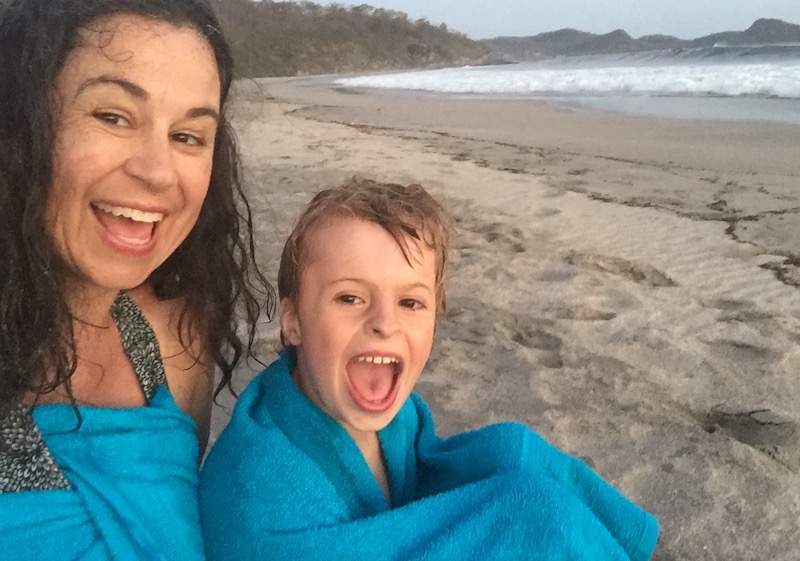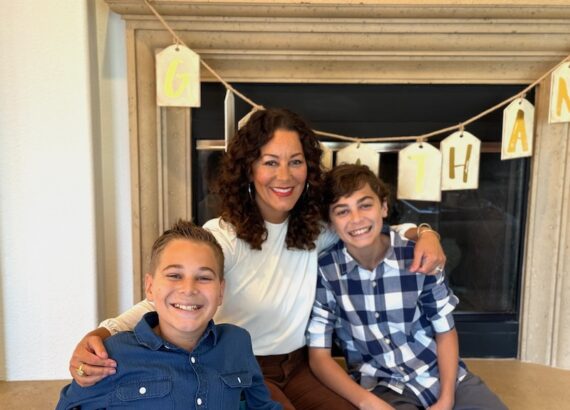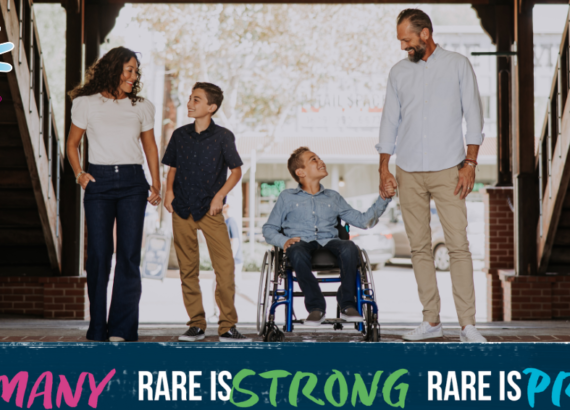My Story by Ashley Bristow

In her book My Own Blood: A Memoir, author Ashley Bristowe shares her story of raising her son Al, diagnosed with the rare genetic disorder Kleefstra Syndrome.
When their second child, Alexander, is diagnosed with a rare genetic disorder, doctors tell Ashley Bristowe and her husband that the boy won’t walk, or even talk—that he is profoundly disabled. Stunned and reeling, Ashley researches a disorder so new it’s just been named—Kleefstra Syndrome–and she finds little hope and a maze of obstacles. Then she comes across the US-based “Institutes,” which have been working to improve the lives of brain-injured children for decades. Recruiting volunteers, organizing therapy, juggling a million tests and appointments, even fundraising as the family falls deep into debt, Ashley devotes years of 24/7 effort to running an impossibly rigorous diet and therapy programme for their son with the hope of saving his life, and her own. The ending is happy: he will never be a “normal” boy, but Alexander talks, he walks, he swims, he plays the piano (badly) and he goes to school.
This victory isn’t clean and it’s far from pretty; the personal toll on Ashley is devastating. “It takes a village,” people say, but too much of their village is uncomfortable with her son’s difference, the therapy regimen’s demands and the family’s bottomless need. The health and provincial services bureaucracy set them a maddening set of hoops to jump through, showing how disabled children and their families languish because of criminally low expectations about what can be done to help.
My Own Blood is an uplifting story, but it never shies away from the devastating impact of a baby that science couldn’t predict and medicine couldn’t help. It’s the story of a woman who lost everything she’d once been–a professional, an optimist, a joker, a capable adult–in sacrifice to her son. An honest account of a woman’s life turned upside down.
“Then, just after midnight on May 11, 2009, I went into labour. You know what I’m going to say next, because the story is clearly about to go sideways. We’d gone to bed with ten thousand ideas for the future, all of which were doable, achievable, or in progress. Less than twenty-four hours later our lives had changed totally—and forever. We now had a son, and we chose to name him Alexander.
That was the last independent, unrushed, unpanicked decision we made for years to come.
Now I have a special-needs child.
In real life say, He was unexpectedly born disabled. Not unexpectedly born––we knew he was coming. But we didn’t know he’d be disabled.
There’s an edge to the “not unexpectedly born” part that strikes people as funny. Helps them relax, before I gut-punch them with the bit nobody wants to hear.
Did it work for you?”
Bristowe, A., My Own Blood, Chapter 1, Penguin Random House: Canada. (2021). (p. 4).







